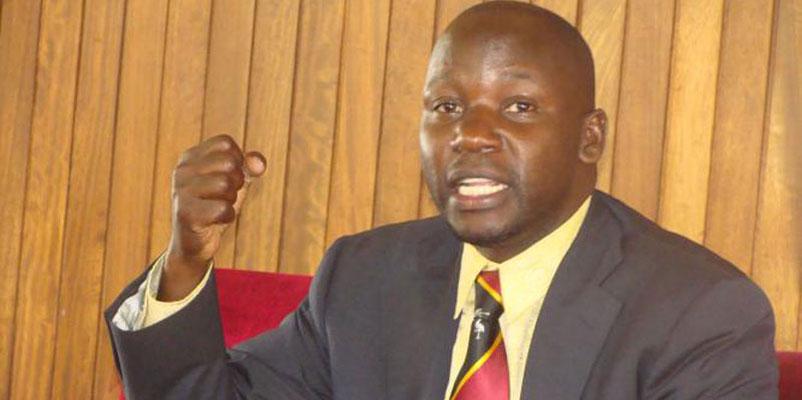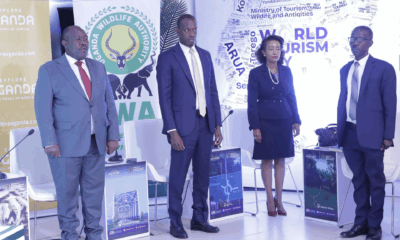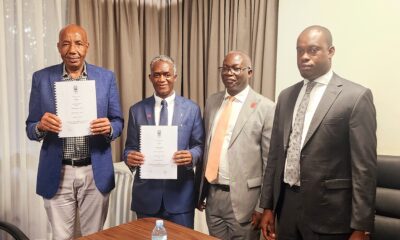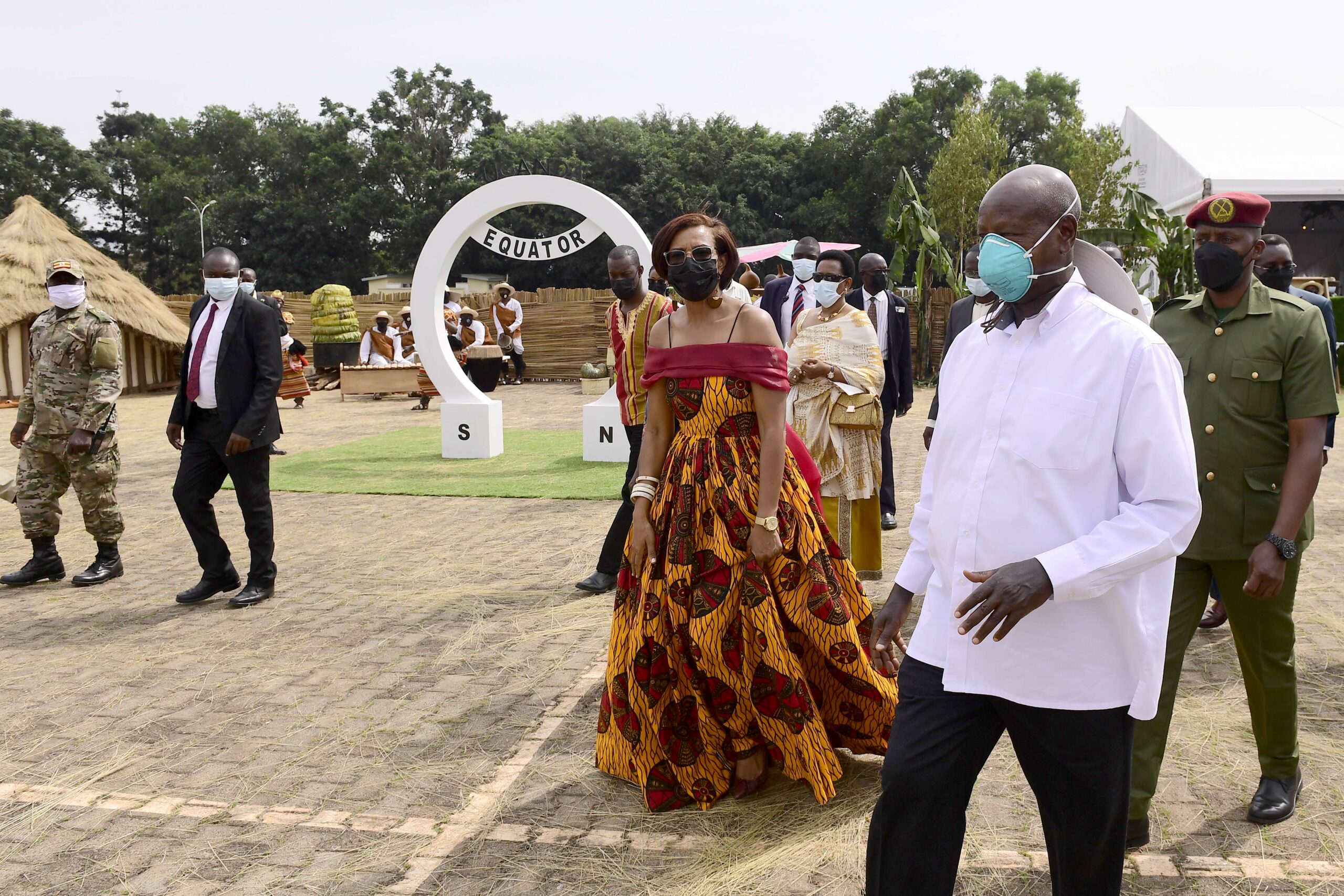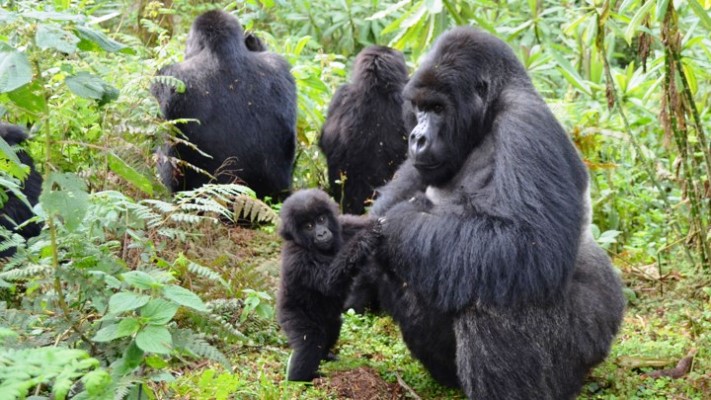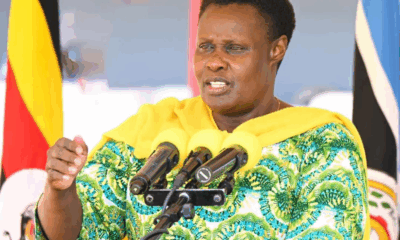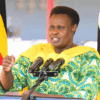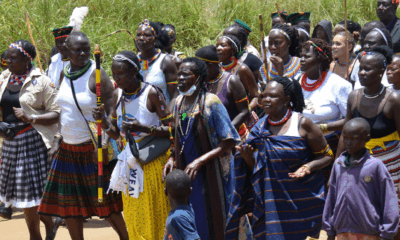News
‘Curvy Women’ a Pointer to Wrong Priorities in Tourism
The State Minister for Tourism Godfrey Kiwanda Suubi has come under scathing criticism from across the Ugandan society for initiating a campaign that seeks to promote Ugandan women as a tourist attraction.
The criticism stems from the backing Kiwanda gave to initiators of the Miss Curvy Contest that seeks to celebrate ‘Uganda’s endowed women’ by focusing on their bodies.
The women fraternity joined by a considerable number of men including the Minister of State for Ethics Fr. Simon Lokodo have mounted a counter-campaign to the minister’s initiative insisting that the Minister either apologises or resigns.
A number of women including Members of Parliament sprung up from their offices to protest the Miss Curvy Beauty Contest, for objectifying women and demeaning them.
Kasese district woman MP Winnie Kiiza protested: “We are not an object for pleasure. We want the Hon. Minister of State for Tourism to apologize to the women of Uganda and to the Women of the world. Why doesn’t he say tourists should come and see the wealth of men that we have in Uganda? What is it about women that we should be treated as objects for tourists to come and see?”
Observers of the tourism sector however believe that the Miss Curvy contest points to wider malaise and dysfunction within the Tourism industry including the failure by the Ministry of Tourism Wildlife and Antiquities to follow a strategic plan, failure to learn lessons from research and failure to engage with the stakeholders to address challenges.
Members of Parliament this week condemned the limited budget allocations to the tourism sector despite the fact that it is Uganda’s biggest foreign exchange earner.
Joseph Muvawala, the Executive Director of the National Planning Authority (NPA) has also cited the absence of Strategic Plans or failure to implement them by ministries.
Although the ministry currently runs under a 10-year Uganda Tourism 2014-2024 Development Master Plan, the NPA has said it is not aligned with the National Development Plan.
Buliisa County MP Mukitare Birahwa sympathises with Kiwanda as he tries to diversify Uganda’s tourist attractions, but points out that government needs to engage all stakeholders especially the private sector in developing the sector.
“The government needs to change focus from just natural attractions by empowering local communities along the tourist routes to ensure that when tourists are travelling to see natural beauties, they stop over at different points to buy artefacts, eat local food, ” says Birahwa.
Birahwa also argues that the government needs to invest in establishing infrastructure especially on water bodies such as beautiful lodges, beach facilities, and state of the art cruising boats.
Birahwa’s view is supported by Michael Wakabi, a writer and keen observer of the hospitality sector in Uganda, who argues that Minister Kiwanda needs to tackle challenges that have already been identified that cripple Uganda’s tourism sector.
Wakabi argues: “The problem with Uganda’s tourism is not a shortage of attractions but rather an infrastructure deficit and perceptions of poverty and disease. Kiwanda Godfrey would spend his time better, mobilising synergies between the central and local governments to address problems such as poor roads leading to tourism sites, lousy accommodation and dining.”
Research has demonstrated that the biggest problem with Uganda’s tourism is not even awareness but lack of value for money. In short, the few tourists who have come here feel that our destination shortchanges visitors. Resolving that requires a lot of thinking and stakeholder engagement.
Poverty scares away tourists
Wakabi cites findings from a consumer research survey that was carried in key source markets – Europe and US between 2004 – 05 that concluded that Uganda was largely unknown.
Wakabi says: “That was not a bad thing because it meant that you had no serious reputation issues and so you had a kind of blank sheet to chart a new course. A major concern for potential wealthy tourists, surprisingly, were the high levels of poverty and Aids messaging that suggest high rates.
“Tourists did not want to be confronted by poverty and illness which would make them feel guilty about enjoying their wealth. Those that had been here complained that the overall experience of the destination did not give value for money. The industry tended to think about just taking a tourist to see gorillas amidst poor infrastructure, lodging and food that tourists felt was not worthy their money. They also said our food was monotonous – fish and chips, chicken and chips etc throughout the visit.
So while they did not mind the product, they felt we were overcharging. So good tourism roads are important to reduce the hassle of getting from point A to B. Good quality guides, chefs etc are equally important. Then there is the multi-sectoral approach to deal with the peripheral issues. I suspect that Rwanda read and picked lessons from our research because after a while, they banned begging and removed those charity boxes from the airport and other public places. They have also focused on improving the quality of life among the communities etc.
“Then there is the confusion around marketing. I was appalled on several occasions when the EU project I was working with would hire space at international tourism fairs for us but putting up the little money to design the stand was a hassle. Now, after modest increases in allocations to UTB [the Uganda Tourism Board], I was shocked to learn that money was returned to the treasury unspent.
Sex tourism negative publicity
According to Wakabi, the Miss Curvy Contest runs the major risk of being interpreted by tourists not only as a campaign to brand Uganda as a sex tourism destination, but also as a place where under-age sex is permissible, which could cost the country.
“I believe Mr Kiwanda Godfrey means well but the negative feedback should not just be dismissed because his target – the foreign tourists are likely to see the initiative in the same terms – an invitation to sex. The problem is that when they come they will not be seeking ‘curvaceous’ sex but most likely underage sex. Using sex appeal as a hook for tourism is a double aged sword. Countries like Thailand are now battling this genie and it has proved so intractable that even domestic laws in the EU against sex tourism in foreign countries are hardly having any impact,” Wakabi adds.
Indeed, the Curvy Women Contest, and perhaps previous initiatives by the Minister such as the Rolex Festival, point to the lack of or limited engagement with stakeholders.
“You have issues of product development and management that need to be addressed before you even promote because one negative word of mouth from a disappointed tourist will require millions to undo. Word of mouth is more trusted by potential visitors than official marketing brochures. A tourism minister who spends time reading these reports rather than running around like headless chicken, would find a more focused approach to promoting our tourism,” Wakabi adds.
Comments



